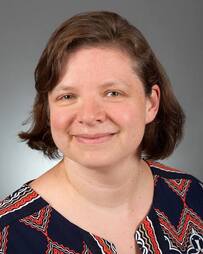Liza Konnikova, MD PhD
Our group focused on the development and regulation of circulating and mucosal immunity and their roles in human health and disease.
We are trying to answer basic questions about human immune development that include:
What are the functions of fetal and neonatal immune cells in early life?
How early does it develop?
Does it differ between organs and various mucosal sites?
What are the antigens priming early immune cells?
What is the cross talk between the various cellular components that maintains homeostasis?
What is the role of environmental stimuli (microbiome, nutrition, etc) in shaping the fetal and infant immune system?
How do fetal and postnatal immune cells contribute to disease susceptibility?[
During my post-doctoral training, I developed a methodology for cryopreserving intestinal tissue with excellent viability and cell recovery (Mucosal Immunology, 2018). To further optimize our ability to study infant populations, we have also designed a protocol to perform simultaneous multi-omic assays from two drops of blood or ~100 mL. This has allowed us to optimize biological data collection from an incredibly vulnerable patient population, the premature infant, whose total blood volume can be as low as 50ml for an infant weighing 500g and allowing us to study their immune development at an unprecedented granularity.
Using a systems biology approaches and cutting-edge techniques such as imaging and suspension mass cytometry and single cell RNA sequencing, our group has focused on deciphering how mucosal immunity develops at barrier sites such as the placenta and the GI tract and what goes array to cause diseases at these sites. To this end, we have established a large biorepository (over 10,000 samples) of control and diseased cryopreserved tissue across the human lifespan. Using tissue from our biobank, we have been able to study the development of human fetal intestinal and placental immunity (Stras et al., Developmental Cell, 2019; Toothaker et al., Development, 2022) demonstrating presence of functional memory T cells as early as the second trimester. In our pursuit of understanding the source of antigens priming these T cells, we have established a collaboration with Profs. Koren and Khatib’s groups to study fetal intestine associated microbiome and metabolome and were the first to show that human fetal intestinal tissue contains abundant and diverse bacterial metabolites in the absence of a detectable microbiome (Li and Toothaker et al, JCI Insight, 2020).
In our desire to understand mucosal dysregulation in disease, we have identified global mucosal and systemic cellular dysregulation and unique immune and epithelial populations in necrotizing enterocolitis and inflammatory bowel disease (Olaloye et al., JEM, 2021; Egozi and Olaloye, Plos Bio, 2023, Mitsialis, Gastroenterology, 2020).
Finally, in order to study epithelial immune interactions we have established immune co-cultures with intestine and placental vili derived organoid models.
We are trying to answer basic questions about human immune development that include:
What are the functions of fetal and neonatal immune cells in early life?
How early does it develop?
Does it differ between organs and various mucosal sites?
What are the antigens priming early immune cells?
What is the cross talk between the various cellular components that maintains homeostasis?
What is the role of environmental stimuli (microbiome, nutrition, etc) in shaping the fetal and infant immune system?
How do fetal and postnatal immune cells contribute to disease susceptibility?[
During my post-doctoral training, I developed a methodology for cryopreserving intestinal tissue with excellent viability and cell recovery (Mucosal Immunology, 2018). To further optimize our ability to study infant populations, we have also designed a protocol to perform simultaneous multi-omic assays from two drops of blood or ~100 mL. This has allowed us to optimize biological data collection from an incredibly vulnerable patient population, the premature infant, whose total blood volume can be as low as 50ml for an infant weighing 500g and allowing us to study their immune development at an unprecedented granularity.
Using a systems biology approaches and cutting-edge techniques such as imaging and suspension mass cytometry and single cell RNA sequencing, our group has focused on deciphering how mucosal immunity develops at barrier sites such as the placenta and the GI tract and what goes array to cause diseases at these sites. To this end, we have established a large biorepository (over 10,000 samples) of control and diseased cryopreserved tissue across the human lifespan. Using tissue from our biobank, we have been able to study the development of human fetal intestinal and placental immunity (Stras et al., Developmental Cell, 2019; Toothaker et al., Development, 2022) demonstrating presence of functional memory T cells as early as the second trimester. In our pursuit of understanding the source of antigens priming these T cells, we have established a collaboration with Profs. Koren and Khatib’s groups to study fetal intestine associated microbiome and metabolome and were the first to show that human fetal intestinal tissue contains abundant and diverse bacterial metabolites in the absence of a detectable microbiome (Li and Toothaker et al, JCI Insight, 2020).
In our desire to understand mucosal dysregulation in disease, we have identified global mucosal and systemic cellular dysregulation and unique immune and epithelial populations in necrotizing enterocolitis and inflammatory bowel disease (Olaloye et al., JEM, 2021; Egozi and Olaloye, Plos Bio, 2023, Mitsialis, Gastroenterology, 2020).
Finally, in order to study epithelial immune interactions we have established immune co-cultures with intestine and placental vili derived organoid models.
